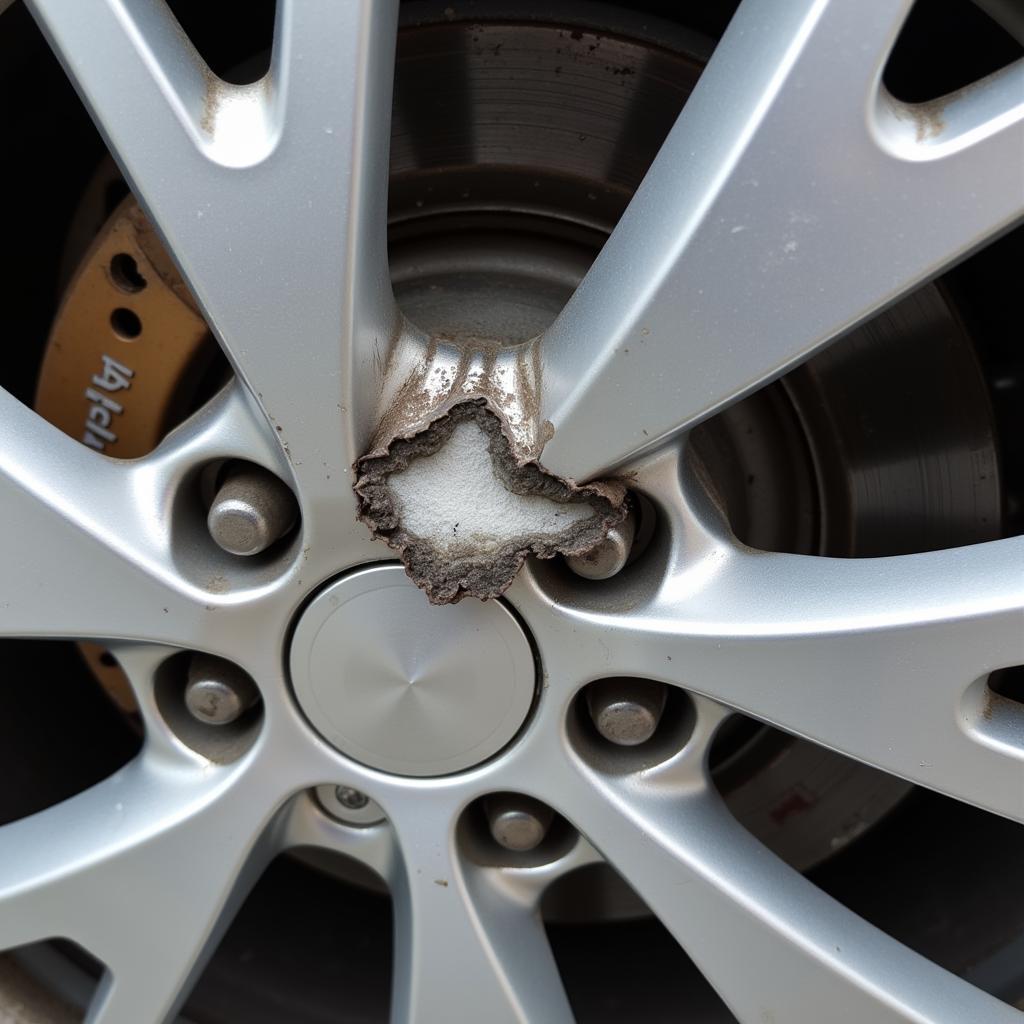As a car owner, scratches are an unfortunate reality. Whether it’s a minor scrape from a parking lot mishap or a deeper scratch from a stray branch, these blemishes can detract from your car’s appearance. But don’t worry, not all scratches are created equal, and many can be fixed at home with the right approach and a little bit of elbow grease. This guide will walk you through different methods for fixing car scratches, from DIY solutions to professional options.
One popular solution for minor car scratches is using a car scratch fix pro pen. These pens contain a resin that fills in and seals the scratch, making it less noticeable.
Assessing the Damage: Is it a Scratch or a Deeper Issue?
Before you grab your toolbox, it’s essential to assess the severity of the scratch. Not all scratches are created equal, and understanding the depth and type of damage will determine the best course of action.
- Clear Coat Scratches: These are the most minor type of scratch, affecting only the clear coat layer that protects your car’s paint. They often appear as light, superficial marks and can often be buffed out.
- Paint Scratches: Deeper than clear coat scratches, these penetrate the paint layer and expose the primer underneath. You’ll likely see a different color in the scratch, usually a lighter shade than your car’s paint.
- Deep Scratches: These gouges cut through the primer and expose the bare metal, increasing the risk of rust. Deep scratches require more extensive repairs.
DIY Fixes for Minor Scratches
For minor clear coat scratches and some light paint scratches, you can often achieve satisfactory results with DIY methods. Here are a few tried-and-true options:
1. Toothpaste:
Believe it or not, the mild abrasives in toothpaste can help polish out minor scratches. Apply a small amount of white toothpaste (not gel) to a clean microfiber cloth and rub it gently in a circular motion over the scratch. Wipe away the residue with a damp cloth.
2. Baking Soda Paste:
Similar to toothpaste, baking soda also has mild abrasive properties. Create a paste by mixing baking soda with a small amount of water. Apply the paste to the scratch using a soft cloth, rub gently, and then rinse and dry the area thoroughly.
3. Scratch Remover Products:
Numerous commercial scratch remover products are available, ranging from rubbing compounds to scratch removal kits. These products typically contain abrasives and polishing agents to remove or minimize the appearance of scratches. Follow the product instructions carefully for the best results.
When to Call the Pros
While DIY solutions are great for minor scratches, deeper scratches or those that have penetrated the primer or metal require professional attention. Here are instances when you should consider seeking professional help:
- Rust Formation: If you notice rust within the scratch, it’s crucial to address it immediately to prevent further damage.
- Extensive Damage: For large or deep scratches, especially those covering a wide area, professional repair is the best course of action.
- Lack of Improvement: If you’ve tried DIY methods and haven’t seen any improvement, it’s time to consult with a professional.
Professional Car Scratch Repair Options
Auto body shops and detailers offer various professional options for fixing car scratches, including:
- Touch-Up Paint: For deeper scratches that have penetrated the paint layer, a professional can match your car’s paint color and apply touch-up paint to fill the scratch.
- Spot Painting: This involves sanding down the damaged area and repainting a small section of the panel. It’s a more involved process but provides a seamless finish for larger or more noticeable scratches.
- Panel Replacement: In cases of severe damage where repairing the existing panel isn’t feasible, a professional may recommend replacing the entire panel for the best results.
“When dealing with scratches that go beyond the clear coat, it’s crucial to address the issue promptly,” advises John Miller, a seasoned auto body specialist with over 20 years of experience. “Ignoring deeper scratches, especially those exposing the metal, can lead to rust formation and more costly repairs down the line.”
Preventing Future Scratches
Prevention is always better than cure! Here are some tips to help you avoid those pesky scratches in the first place:
- Practice Safe Parking: Park your car away from shopping cart corrals, areas with low-hanging branches, and tight parking spaces. Consider using a car cover if you park outdoors frequently.
- Regular Washing: Regularly washing your car helps remove dirt, grime, and contaminants that can scratch the paint’s surface over time.
- Waxing and Sealing: Applying a coat of wax or sealant provides an extra layer of protection to your car’s paint, making it more resistant to minor scratches and swirl marks.
Conclusion
Scratches are an inevitable part of car ownership, but knowing how to deal with them can save you time, money, and unnecessary stress. While DIY methods can effectively address minor clear coat scratches, deeper or more extensive damage often requires the expertise of professionals. By understanding the severity of the scratch and the available repair options, you can make informed decisions to keep your car looking its best.
For expert advice or assistance with car scratch repair, feel free to contact AutoTipPro at +1 (641) 206-8880. Our team of experienced professionals is here to help you get your car looking its best. You can visit us at our office located at 500 N St Mary’s St, San Antonio, TX 78205, United States. We look forward to serving you!






Leave a Reply